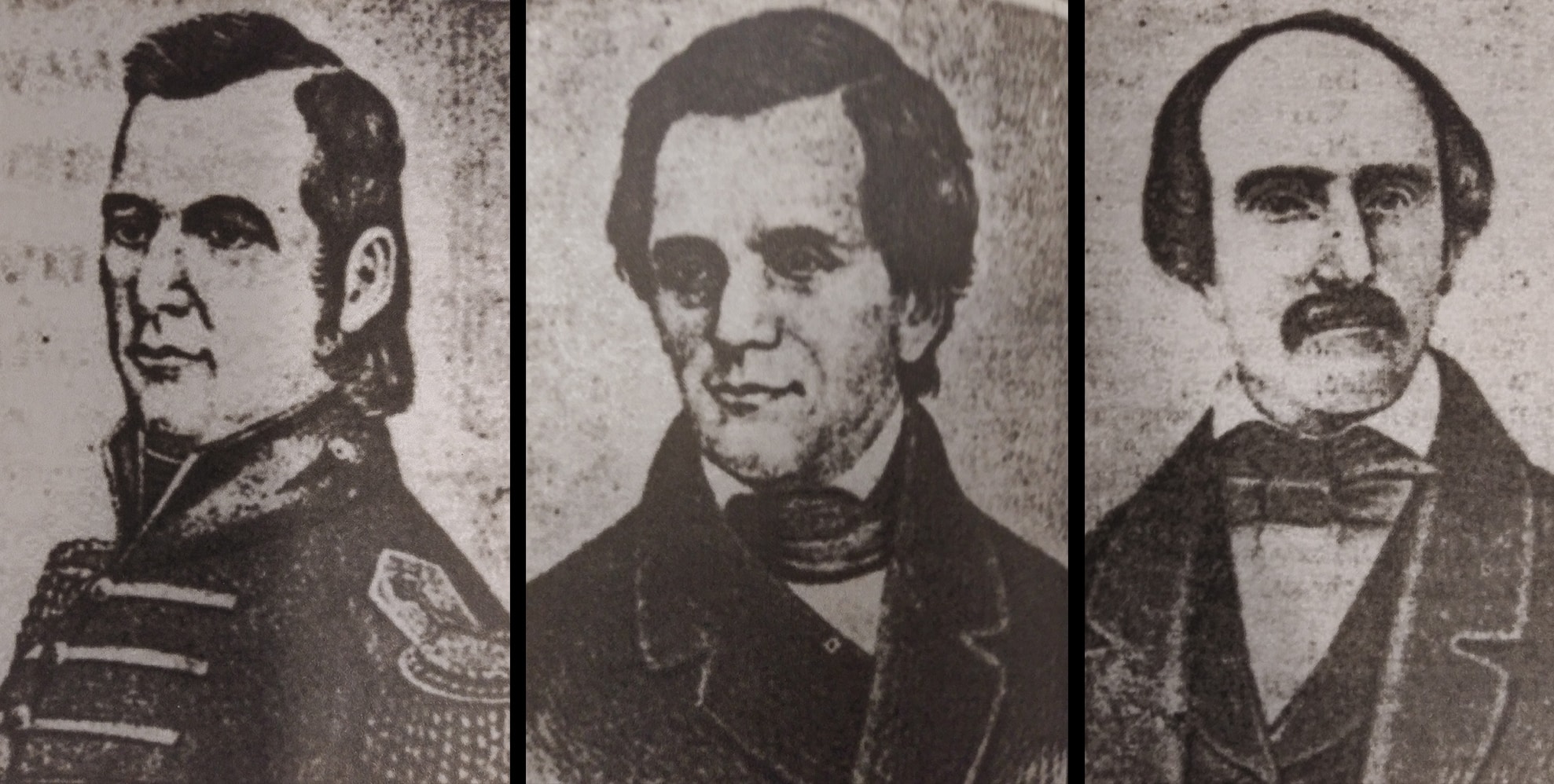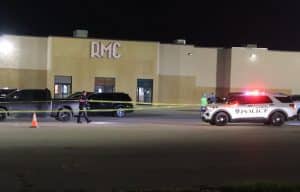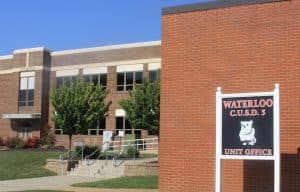Land of Governors: Monroe County’s ties to top state post

In July, Illinois Gov. JB Pritzker announced his intention to seek a second term as governor.
Former Illinois State Senator Paul Schimpf (R-Waterloo) announced earlier this year he will seek to unseat the Chicago Democrat.
If elected in 2022, Schimpf would join an exclusive list of governors having ties to Monroe County. There have been three such governors in the state’s history – all serving prior to the Civil War.
The first Illinois Governor from Monroe County was Shadrach Bond. He became the very first governor of the newly-formed state in 1818.
Bond was originally from the Baltimore, Md., area, but moved to the “Illinois Country” to join his uncle, also named Shadrach.
The elder Shadrach had been a member of the George Rogers Clark expedition that facilitated settlement after the Revolutionary War in what would become Southern Illinois. He is buried in Miles Cemetery and there is a monument in his honor along Bluff Road just south of Fountain.
The younger Shadrach was drawn by the “lure of adventure in the untamed West” as well as the news of fertile land in the Bottoms, and joined his uncle in the Moredock Precinct.
He served in the area during three distinct classifications of the region. In 1806, he became a Lieutenant Colonel in the St. Clair County militia (Monroe County was not established until 1816) and was elected to his uncle’s seat in the Territorial Legislature.
At the time, what is now Monroe County was part of the Indiana Territory known as “Illinois Country.” Illinois became its own territory in 1809 and included what became Wisconsin and parts of the Dakotas.
In 1812, Bond enlisted as a soldier from the Illinois Territory in the War of 1812, earning the rank of captain and, after the war, recognized as a colonel for “bravery and meritorious conduct.”
It was during this time that he was elected as a congressional delegate to Congress from the Illinois Territory. He left the post in 1814 to become the “receiver of moneys” for the territory and decided to sell his Harrisonville farm (in the “New Design District of St. Clair County”) to move south to Kaskaskia, which was then the capital of Illinois.
Having established his good name and reputation, he was elected unopposed as governor of the newly-found State of Illinois and served one term from Oct. 6, 1818, to Dec. 5, 1822.
When he returned to Kaskaskia at the end of his term, the state capital had been moved to Vandalia, but Bond continued to work as an important Illinois official.
President James Monroe appointed Bond as chief record keeper of the Kaskaskia land office, a job that kept Bond busy as more and more pioneers decided to stake a claim in what was then the new western frontier.
Chicago would not even be organized as a town (population 200) until a year after Bond’s death.
Shadrach Bond died of pneumonia in 1832 and was buried at his farm. His remains were later moved to Chester due to flood concerns. Bond County in Illinois is named after Shadrach.
Thomas Ford, the next governor to hail from Monroe County, also came from a Maryland family, but was born in Pennsylvania in 1800.
In 1804, Ford’s family moved to the Mitchie Precinct in what would become southwest Monroe County.
The family had no wealth to speak of and Ford did not receive much in the way of formal education. Ford’s older half-brother, George Forquer, also an Illinois politician and a partner in platting the town of Waterloo, helped raise and educate Ford.
At Forquer’s urging, Ford studied law in Kentucky in 1818, but returned before the end of his first year when he learned that Forquer was experiencing financial hardship.
Ford eventually studied law under Daniel P. Cook, the other partner who helped plat Waterloo. Cook was also a newspaper publisher, Illinois congressman, first Illinois Attorney General and is the namesake of Cook County.
By 1829, Ford had become the State’s Attorney of the Fifth Judicial District. In 1835, he was commissioned as a Circuit Judge and then appointed to the State Supreme Court in 1841.
He left the bench in 1842 to seek the governor’s seat, an election he won and served for one term. His legacy includes saving the state’s financial reputation as well as prompting a state constitutional convention – although it happened after he left office.
At the end of his term in 1846, Ford was asked to run for Senate, but declined, opting to return to his law practice in Peoria. He died of tuberculosis in 1850.
He is the namesake of Ford County, Illinois.
The last of the governors with Monroe County roots was William Bissell.
Bissell was born in New York and raised and educated in medicine in Philadelphia.
Bissell began his first medical residence in 1837 at the Bluff Precinct in Monroe County west of Waterloo, where he practiced for three years before pursuing law.
By 1844, he had become the prosecuting attorney for St. Clair County, a position he held until enlisting as a private in the Mexican-American War in 1846. He quickly became a captain, then colonel, and was elected to Congress upon his return to Illinois is 1948.
As an anti-slavery Democrat, he became disenfranchised by the party’s southern leadership and their views on slavery. He won as an independent candidate for Congress in 1852.
Due to health issues from his wartime experiences, Bissell suffered a stroke and did not seek a term during the election of 1854; however, he became the unanimous choice for governor at the 1856 “Bloomington Convention” that established the Illinois Republican Party, one attended by future President Abraham Lincoln among other prominent politicians.
An interesting part of Bissell’s election came as part of his oath of office. At the time, elected officials were to swear an oath that they had never participated in or accepted a duel.
During a speech on the House floor speaking against trends in the South and defending his own military record, Bissell had upset Jefferson Davis – who would later become president of the Confederate States – so much that Davis challenged him to a duel.
Bissell accepted the challenge, although the duel never happened through the intervention of President Zachary Taylor, Davis’ father-in law.
When challenged on the duel issue, Bissell claimed that it happened in the District of Columbia and had no bearing on his official duties in Illinois and took the oath with “tacit” approval of Republicans.
Bissell was unable to accomplish much as a Republican governor in a state with Democrat-controlled legislature, although he was able to block a bill to “gerrymander” districts via the 1855 census. Bissell refused to sign the bill and no action was taken before the session adjourned.
Bissell died 10 months before the end of his term in March 1860, likely due to health complications of his stroke several years prior.
If elected, Schimpf would be the fourth governor with Monroe County ties. Schimpf’s family moved to the area in 1980. Schimpf grew up in Waterloo and his mother was a teacher at Waterloo Junior High School.
When Schimpf left home to attend the U.S. Naval Academy in 1989, he maintained Waterloo as his “home of record” throughout his service with the U.S. Marine Corps.
Schimpf returned to Waterloo in 2013 with his wife and two sons after retiring from the Marines.
Schimpf said he came back because “this is the area that I love and I want my boys close to family.”
In 2016, Schimpf was elected to the Illinois Senate for the 58th district. Schimpf did not seek re-election in 2020, choosing instead to focus on his gubernatorial campaign.
Schimpf spoke with the Republic-Timesabout what it would mean to represent Monroe County as the state governor.
“I ran to be the governor of the entire state,” Schimpf responded, adding that it would be a “benefit” to have a governor with perspective “outside of Chicago.”
Schimpf said he wanted to see a “united state” in order to solve problems facing Illinois.
“I think our state has been heading in the wrong direction,” Schimpf continued, and he does not want to stand by and “watch things fall apart.”
Schimpf said the “biggest thing” he has noticed is the “lack of trust in government” that has spread in recent years, adding he has “kept his promises” and can “unite the state.”
He admitted the hardest part of campaigning for governor are the long hours spent traveling and “a lot of time away from home.”
Schimpf explained he has to be in the Chicago area frequently as “75 percent of (Illinois’) population is north of Interstate 80.”
He said he is usually home by Saturday night and reserves every Sunday as a work-free family day.
Due to recent legislation, the primary election in Illinois will not be until late June 2022. Schimpf expects to circulate petitions for candidacy beginning in January.
Much information about the past governors was taken from the history books “Arrowheads to Aerojets” and “From Tablet to Tablet: Monroe County 1816-2016.”






